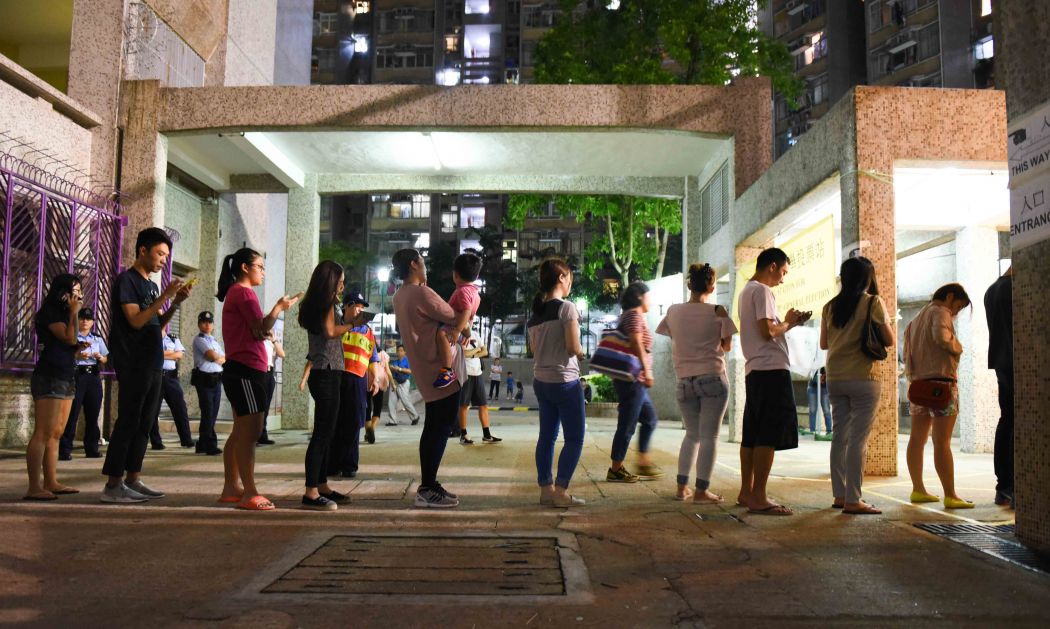A feature of the government’s crackdown on dissent over the last two years has been the way in which previously respected – even admired – institutions were pressed into service and discredited in the eyes of the public by their efforts to display a becoming level of enthusiasm for reform, stability and one-party rule.
So it should perhaps come as no surprise that this week it was the turn of the ICAC to be dragged into the mud. The Independent Commission Against Corruption was one of Hong Kong’s key institutions, offering the crucial hope that corruption had not only gone but would not be allowed to return.

It has always been hated by the police, because its first notable public act was to dismantle the Force’s corporate corruption racket and deprive police people of a large undocumented tax-free income. So now that so many senior officials are ex-policemen we should not, perhaps, have expected it to escape unscathed.
This week we were told that the ICAC had charged former professor Benny Tai and two other people with electoral malpractices. This concerned the Legislative Council elections held in …. 2016.
This is a strange occurrence. The electoral law states that any candidate or group of voters dissatisfied with the conduct of an election can appeal to a High Court Judge. This must be done in the two months immediately following the election. Everyone involved in the election knew this.
Nobody complained. Indeed at the time nobody suggested that what Prof Tai and his two friends had done was illegal. We must not go into the details of the case against the trio but a conspicuous feature of it was the placing of newspaper advertisements, so the absence of complaints can hardly be put down to people not knowing what was going on.

Announcing the arrests, the ICAC said it had acted following public complaints. This leaves us with three possibilities. The first is that a member of the public did in fact complain after the election but the ICAC took five years to investigate.
The second, hardly more credible, is that some random member of the public, browsing nostalgically in back numbers of the now-deceased Apple Daily, suddenly realised that a crime might have been committed and contacted the ICAC in a moment of public-spirited zeal.
The third is that the “member of the public” was a very senior member of the public who urged the ICAC to get with the programme and make its contribution to our government’s main current project, which is to throw as many legal bricks as possible at any conspicuous figure in what used to be known as the pan-democratic opposition.
The trouble with this is that if politics is influencing who gets prosecuted we must fear that it will soon influence who does not get prosecuted. And we have seen that movie before.
While I must urge readers not to read into this any intimation as to the innocence or guilt of the three people charged, which is not intended, there is no reason why we should not note, and comment on, the fact that this prosecution is outrageously late.

I have already written about this question of how long is a reasonable time for legal proceedings and do not propose to repeat the whole of that. Suffice to say that there are or should be limits, and by international standards they should be somewhat shorter than five years.
Of course if you murder your wife, bury her body in the back garden and nobody notices, you must not complain if you are prosecuted 20 years later when the new occupant of your house decides to build a swimming pool and discovers the remains. If on the other hand you decapitate her in the middle of Nathan Road and nothing happens for five years you are entitled to complain that the delay has seriously jeopardised your chances of finding witnesses who will substantiate your claim of self-defence.
Anyway, this is not that sort of case. Prof Tai’s activities were widely publicised and discussed at the time. They were known to both the Department of Justice and the ICAC if they were awake. Even disgruntled DAB losers did not complain at the time that the law had been broken. What has changed?
Support HKFP | Policies & Ethics | Error/typo? | Contact Us | Newsletter | Transparency & Annual Report | Apps
Help safeguard press freedom & keep HKFP free for all readers by supporting our team
| HKFP is an impartial platform & does not necessarily share the views of opinion writers or advertisers. HKFP presents a diversity of views & regularly invites figures across the political spectrum to write for us. Press freedom is guaranteed under the Basic Law, security law, Bill of Rights and Chinese constitution. Opinion pieces aim to point out errors or defects in the government, law or policies, or aim to suggest ideas or alterations via legal means without an intention of hatred, discontent or hostility against the authorities or other communities. |

More HKFP OPINION:
HKFP has an impartial stance, transparent funding, and balanced coverage guided by an Ethics Code and Corrections Policy.
Support press freedom & help us surpass 1,000 monthly Patrons: 100% independent, governed by an ethics code & not-for-profit.










